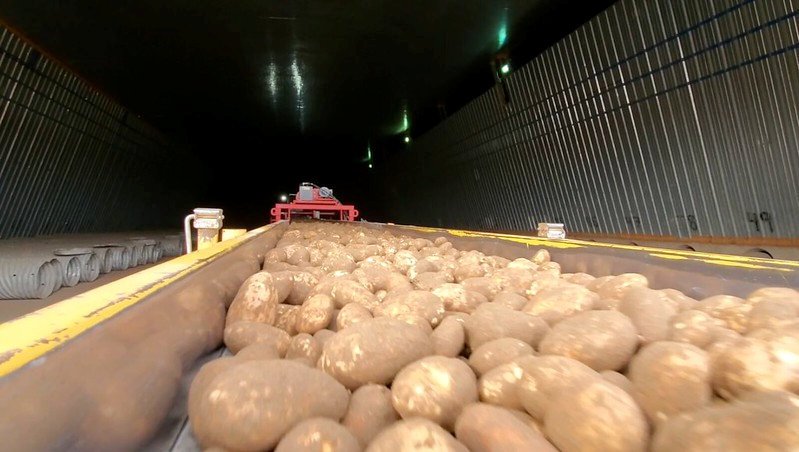OSU, partners receive $50 million grant to develop climate-smart potatoes

CORVALLIS, Ore. (KTVZ) – Oregon State University has been awarded a $50 million grant from the U.S. Department of Agriculture to work with farmers and Native American Tribes on cropping practices that can enhance soil health and reduce the carbon footprint of the Pacific Northwest potato industry.
Oregon State University is collaborating with the University of Idaho and Washington State University, Tribal nations, commodity groups and potato processing businesses on the five-year project that funded under the USDA’s Partnerships for Climate-Smart Commodities program.
It is one of 70 projects totaling up to $2.8 billion funded by the USDA to support America’s farmers, ranchers and forest owners and to strengthen U.S. rural and agricultural communities by building markets for what the USDA is calling climate-smart commodities, meaning implanting green and climate resilient practices in food and agriculture.
“Oregon State University is privileged to take part in this once in a lifetime opportunity to help the potato industry, Native American tribes and other crop producers of all sizes and kinds be part of a national solution to climate challenges,” said Jeffrey Steiner, project leader and director of the OSU Global Hemp Innovation Center.
More than 62% of U.S. potatoes are grown in Oregon, Washington and Idaho and they have an economic value of $2.2 billion annually, according to USDA statistics. Nearly 500,000 acres of potatoes are grown in the three-state region.
Potato production typically uses practices that greatly disturb the soil, particularly at harvest, so organic matter does not build up and greenhouse gases are lost to the atmosphere, project leaders said. This project is designed to assist farmers who want to use soil health building practices that result in climate-smart outcomes.
Oregon State and collaborators at universities and the Soil Health Institute, a nonprofit based in North Carolina, will focus on how climate-smart practices and rotation crops grown with potatoes, those crops produced in the three years between potato crop production years, can offset the effects of the soil-disturbing practices. Rotation crops include cereal grains, alfalfa, corn, hemp and onions. Climate-smart practices include reduced tillage seedings, use of cover crops and mulching residues.
The researchers believe using the proper combinations of these techniques could significantly increase soil organic matter, reduce soil nutrient losses and improve the water holding capacity of the soil – improvements that increase soil health, save water and lead to climate-smart outcomes.
The project team will assess how potatoes and rotation crops are currently being grown on conventional and organic farms and Native Americans lands. By studying what is presently being done and measuring the soil conditions of fields at the beginning of the project, the team will then work with the farmers and Tribal leaders will work to identify soil health building practices and rotation options that work for their farms and land conditions.
The effects of the changes will be monitored by measuring soil data. The data will be used in models to verify the approaches are working. Participating farmers and Native American Tribes will receive incentive payments to offset the initial costs of adopting climate-smart practices and to reduce the risks of early-adoption expenses.
“We want to provide potato and other farmers incentives for finding climate-smart practices that make sense for them and their farm conditions,” Steiner said.
The project will also help develop ways to market and promote climate-smart potatoes and other crops. Some of the producers envision selling branded consumer products that could provide a climate-smart premium to participating farmers and processors.
Those working with OSU, University of Idaho and Washington State researchers and Extension specialists on the project are the Soil Health Institute, LoCo+, 7 Generations LLC, Industrial Hemp Association of Washington, Yakima Nation: Confederated Tribes and Bands, Nez Perce Tribe, Lamb Weston, Frito-Lay, Threemile Canyon Farms, Mart Produce, Simplot, Marc Staunton, Scotty Fenters, GMP Orchards LLC, Selkirk Ag LLC and Triangle Ranch.
About the OSU College of Agricultural Sciences: Through its world-class research on agriculture and food systems, natural resource management, rural economic development and human health, the College provides solutions to Oregon’s most pressing challenges and contributes to a sustainable environment and a prosperous future for Oregonians.